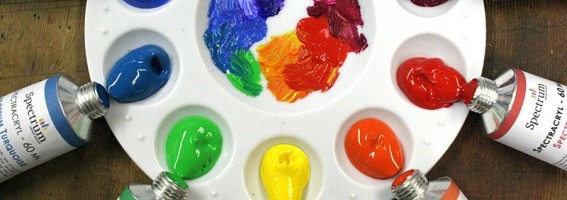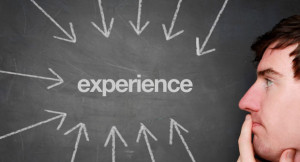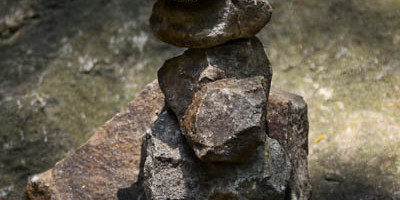Just like the argument over nature versus nurture, a similar discussion often occurs over the concept of change, that is, people can change versus people don’t change. The subject of change is a popular one in our culture, especially the mystery of exactly what creates change. You will probably remember David Bowie’s famous song, “Changes,” both about his personal struggle of acceptance but also about the larger issues of how change occurs. In the lyrics to this song, Bowie repeats over and over, “Time may change me but I can’t trace time.” He appears to view himself as a helpless bystander to how he is changed by time. He is adrift within changes that go on within and about him and seems to keep trying to find some kind of balance and acceptance through it all. Ancient Greek philosopher Heraclitus asserts that “A man cannot step in the same river twice, for it is not the same river and he is not the same man.” This supports Bowie’s sense of lack of control over the movement of life/time that creates changes of which we are not fully aware as they are occurring. While I will concede that there is an aspect of change related to the passage of time over which we have little control, I am thinking about other factors that might create change. Do we have control over any of this? I was just wondering…………………
Sometimes we change out of necessity. When we are subjected to a crisis, for instance, such as a job loss, we are forced to look at things differently. A crisis will often shake us out of our routine, thus offering us a new way of seeing things. It is a mild form of receiving electric shock treatment! Our homeostasis is temporarily altered and as we regroup, we are sometimes exposed to new ways of operating. A romantic breakup or even worse, the death of a significant other will cause the same type of response. We are temporarily derailed, and during that time we are often exposed to a significantly altered way of managing our daily routines. This exposure to new elements can create permanent change. The type of change provoked from some sort of tragedy, however, is not planned and has not been considered before the upsetting event. So, it is more of a shakeup, like throwing the IChing, and however it settles is how you will learn to create a new balance.
Another stimulus for change is an epiphany. This is also unplanned and unexpected. It seems to come about when, for reasons we don’t fully understand, you suddenly see or experience something that has been usual and ordinary in a completely new way. There is usually a triggering event, again often something very ordinary, but you may suddenly have an “Aha” experience. Some prior experiences all on their own have suddenly coalesced to create a new and important meaning. An epiphany may also occur from something emotional or something extraordinarily beautiful. It is like a little seizure of sudden understanding where before there was none. It is a reconfiguring jolt to the brain which allows us to see something not before understood.
The argument about change seems mostly to arise when we want to change in some way that is ostensibly under our control but just doesn’t occur. We may want to lose weight or overcome a fear but do nothing to change our behavior or thinking that would alter these wishes. We may be unhappy in a relationship but continue to behave the same way within it. We may wish to be kinder or more spiritual but do nothing to make that happen. We are experts at wishing, but we are not so good at making our wishes come true.
Einstein suggests that “Everyone thinks of changing the world, but no one thinks of changing himself,” and he further suggests that “The world as we have created it is a process of our thinking. It cannot be changed without changing our thinking.” C. JoyBell C. avers, “The only way we can change is if we learn. The only way we can learn is if we are exposed. And the only way we can become exposed is if we throw ourselves out into the open. Do it. Throw yourself.” She further encourages, “We can’t be afraid of change. You may feel very secure in the pond that you’re in, but if you never venture out of it, you will never know that there is such a thing as an ocean, a sea. Holding on to something that is good for you now, may be the very reason why you don’t have something better.” Nietzsche suggests that “The snake which cannot cast its skin must die. As well the minds which are prevented from changing their opinions; they cease to be mind.” Roy T. Bennett says, “It is only after you’ve stepped outside your comfort zone that you begin to change, grow, and transform.” According to Libba Bray, “And that is how change happens. One gesture. One person. One moment at a time.”
What actually makes the changes that you want to make? WORK! You have to do the work. And what is the work? Just as the experts have suggested, venture out, expose yourself to new things, immerse yourself with people, books, all educational materials that represent successfully what you want to become. Follow the behaviors of those whom have succeeded before you, practice, find a mentor, and ACT! Do your homework and then put it into action! As a psychologist I have seen people do their work, come back, and change, and I have seen those who never take the suggestions offered, keep complaining, and continue to wait for the magic wand. The magic wand is only for fairy tales. If you really want to change, then unless you experience a tragedy, crisis, or epiphany, you have to make the effort. Are you willing to do that? Or as in Bowie’s song ”Changes,” are you willing to allow time to shape you while you remain adrift and helpless to its subtle influences? I was just wondering………………








